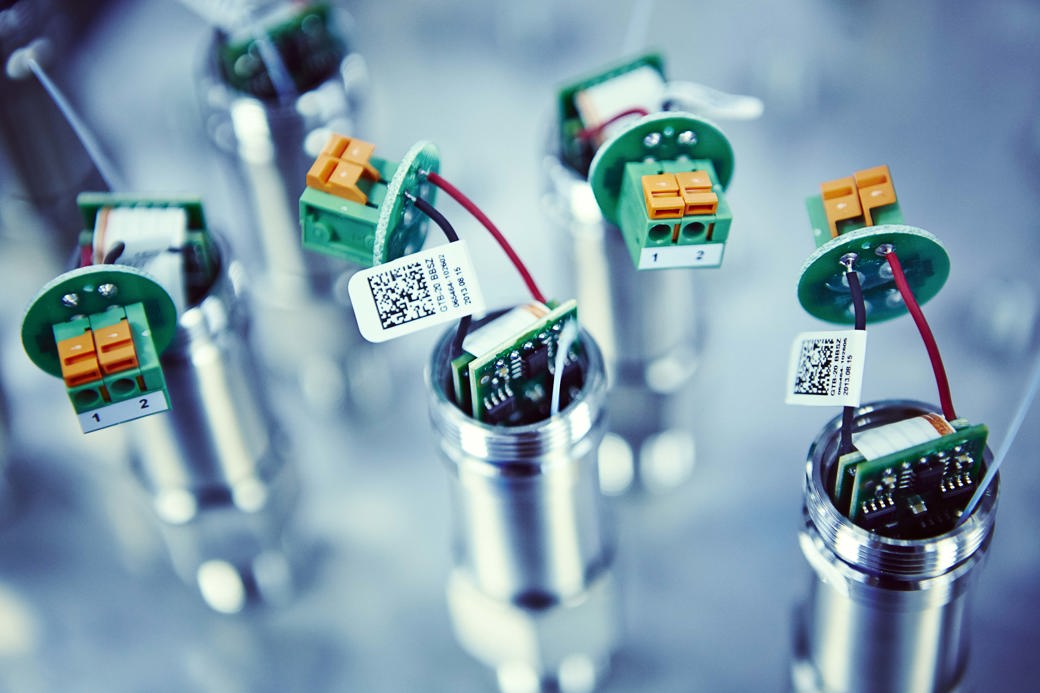
TECHNOLOGY APPLIED TO THE CHALLENGES OF TOMORROW
KONGSBERG aims to be at the forefront of new technology within all our business areas. We look to find solutions to future challenges through state-of-the-art technology.
KONGSBERG is continuously working to anticipate the future challenges of businesses, nations and society at large. Through collaboration with research clusters, customers and partners, we keep improving, enabling us to become an innovative world leader in technology.

We believe technology is the key to unlocking a greater understanding of the needs of tomorrow. Through our partnerships we work to uncover valuable insights, shaping our strategy. We recognise our influence and see it as our duty, to drive progress. Through continually exploring, testing, and pushing the limits, KONGSBERG’s innovations will have a positive influence on the future.
Autonomy - limitless potential for intelligent machines
For some years, we have focused a significant part of our research on developing autonomous technologies. Our achievements in the field of machine learning and artificial intelligence are yielding exceptional results. Technology that can adapt to real world conditions has tremendous potential related to the ocean space, space, infrastructure, transportation and energy.
To date, one of our most innovative projects is the Yara Birkeland project. The vessel Yara Birkeland will be the world’s first, fully electric and autonomous container ship, with zero emissions.

KONGSBERG is responsible for the development and delivery of all key enabling technologies including the sensors and integration required for remote and autonomous ship operations. This is in addition to the electric drive, battery and propulsion control systems.
Yara Birkeland has no need for fuel, or a crew, and can therefore save up to 90 per cent in annual operating costs, compared to similar-sized traditional ships. It is also estimated to replace 40 000 truck journeys per year, reducing local pollution and greenhouse gas emissions significantly.
kognifai - a digital eco-system for the future
Digitalisation is one of the most profound developments to impact business in our time. Most companies have transitioned to new business models, involving a digital eco-system, to harness innovation and foster new revenue possibilities
KONGSBERG has taken a strong position globally, within the industrial digitalisation of our core industries: maritime, oil & gas, renewables & utilities, defence & space. These industries are rapidly moving forward, using advanced digital solutions in core parts of their operations.

Projects across all our business areas are enhanced by digital technologies. This helps our customers understand the nature of their operation in a more meaningful way, improving decision-making, minimising risk, enhancing safety and optimising efficiency.
A digital ecosystem requires a vast amount of interconnected technology resources, in a highly dynamic environment. Because companies invest in digitalisation, this is now quicker and easier to implement than ever before.
Kognifai, our bespoke digital platform, greatly improves data availability, allowing for substantially more complex systems. Our expertise in machine learning and AI, coupled with our deep domain knowledge, puts KONGSBERG at the forefront of industry 4.0, helping customers advance through this sophisticated platform.

Kognifai is based on open standards and allows flexibility and scaling, paving the way for automation and autonomous operations. This also makes Kognifai perfect for use in a variety of sectors.
digital twins - reducing costs, increasing safety
Digital twins and digital threads have already begun to gain significant importance in heavy industries, such as oil and gas and renewable energy. Among other things, these industries wish to switch from periodic to condition-based maintenance. This is an area where costs could be reduced dramatically, in many cases up to 30 per cent.
We can use the same technologies to provide a safer working environment for crew members who perform maintenance on oil installations or wind turbines.

With a digital twin, the crew can see exactly where critical components are located, access all relevant operational and safety data about the equipment, and practice doing the actual maintenance before they execute an assignment.
Although the challenges with these new technologies are very real, they are not insurmountable. Still, a single organisation or software provider cannot solve these challenges on its own. The industry must start collaborating and sharing on an entirely new level. KONGSBERG is working hard to set an example and be a leader in this process.
Cross-over technologies creating new opportunities
KONGSBERG is divided into three main business areas, all of which apply their own ingenuity, to develop new technologies in their specific field. A core strength within our business is collaboration. By sharing expertise across all business areas, we grow our technological competence exponentially.
One of our most notable examples of cross-over technology, is the aforementioned Yara Birkeland project. Naval strike missile technology, intended for use in defence and aerospace, is utilised to create cutting-edge innovations in the maritime shipping area. Sensor fusion and proximity awareness from the defence industry, has made a significant contribution here.

KONGSBERG is a leading expert on dynamic positioning, an enabling technology crucial to the construction of oil and gas rigs. Our solution for dynamic positioning could not have been developed without the use of our submarine technology.
Remote Weapons systems originally designed for use in the defence industry, are now being used in commercial air traffic remote towers to monitor traffic, protect assets and ensure passenger safety.
These are just some of the recent opportunities that have come to life from continual innovation and collaboration from all corners of the KONGSBERG culture. We will continue to pursue exciting possibilities through engaging in the limitless potential of technology.